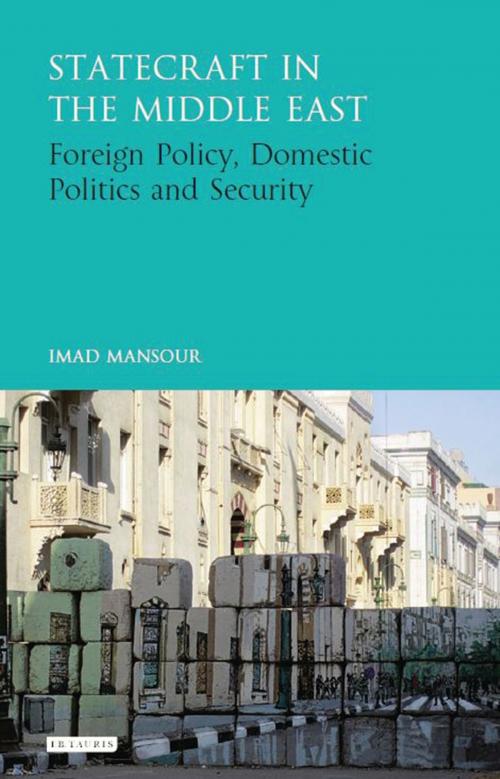Statecraft in the Middle East
Foreign Policy, Domestic Politics and Security
Nonfiction, Social & Cultural Studies, Political Science, Social Science, History| Author: | Imad Mansour | ISBN: | 9781786721419 |
| Publisher: | Bloomsbury Publishing | Publication: | September 27, 2016 |
| Imprint: | I.B. Tauris | Language: | English |
| Author: | Imad Mansour |
| ISBN: | 9781786721419 |
| Publisher: | Bloomsbury Publishing |
| Publication: | September 27, 2016 |
| Imprint: | I.B. Tauris |
| Language: | English |
What role do ideas play in state-building and state behaviour? This book argues that government policies in both foreign relations and domestic politics must always be situated within a broader ideological and societal context. Imad Mansour analyses how governments in the contemporary Middle East have governed internally and acted externally based on societal narratives, narratives which bring together a variety of ideas about a society's history and place in the world. He argues that there is a dominant societal narrative that acts as a primary building block of statecraft, where statecraft is understood as an ongoing set of local, regional and global state-building processes. Mansour investigates the ways in which statecraft in the Middle East has been guided by narratives through a close historical reading and comparative discussion of the political behaviors of six states – Egypt, Israel, Syria, Turkey, Saudi Arabia and Iran – in the second half of the twentieth century and the early twenty-first century. His book demonstrates the analytical purchase of narratives in understanding statecraft and explains why governing governments' decisions need to be understood in complex ways.
What role do ideas play in state-building and state behaviour? This book argues that government policies in both foreign relations and domestic politics must always be situated within a broader ideological and societal context. Imad Mansour analyses how governments in the contemporary Middle East have governed internally and acted externally based on societal narratives, narratives which bring together a variety of ideas about a society's history and place in the world. He argues that there is a dominant societal narrative that acts as a primary building block of statecraft, where statecraft is understood as an ongoing set of local, regional and global state-building processes. Mansour investigates the ways in which statecraft in the Middle East has been guided by narratives through a close historical reading and comparative discussion of the political behaviors of six states – Egypt, Israel, Syria, Turkey, Saudi Arabia and Iran – in the second half of the twentieth century and the early twenty-first century. His book demonstrates the analytical purchase of narratives in understanding statecraft and explains why governing governments' decisions need to be understood in complex ways.















